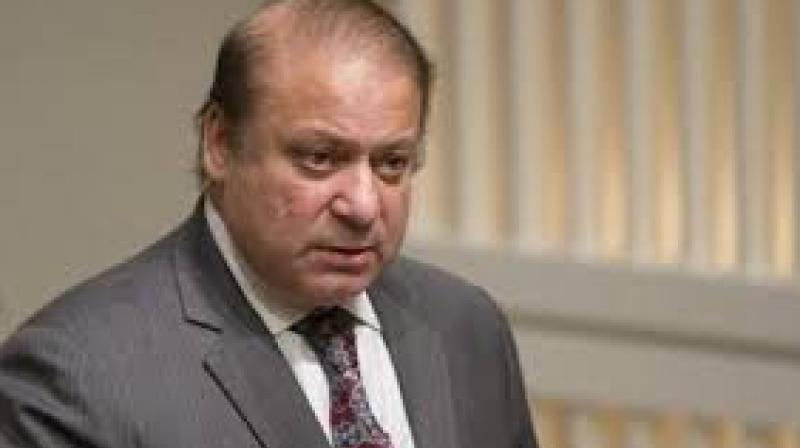PM-FM combo in Pak another fiasco in the making
The N-League was different, or so folk thought.

The 101st day said it all. The rupee cancelled all the claims and boasts and tentative plans of the day before. The tyranny of numbers imposed itself. So, now what?
One of the myths that survived from the 1990s was that the PML(N) was better at managing the economy and better at the governance stuff than the PPP.
It was a myth because the actual record in office showed a not dissimilar performance between the N-League and the PPP.
The PPP was more smash and grab, gaudy and brazen; BB’s second term setting the standard for what could be made off with and how.
But what really stood out was that they had no one to manage the economy. Try and remember the finance minister from the PPP’s two stints in the ’90s.
Try harder. It was BB herself. The sceptical view is that it was to allow herself and Asif to make off with the national silver. The more prosaic reason is that the PPP didn’t really have an economic czar it could turn to.
The N-League was different, or so folk thought. Nawaz himself had a stint as provincial finance minister; no one was going to accuse him of being a finance whiz, but maybe the nuts and bolts of budgeting at least would be familiar.
And there was a deep bench of seemingly capable sorts: Sartaj, Nisar, Dar, Khawaja Asif, Ahsan Iqbal; Shahbaz at the provincial tier. Laugh now, but back then it seemed a stronger team than what the PPP could muster.
But a funny thing happened: the results the N-League produced were not dramatically different to what the PPP delivered.
Had Nawaz not been chucked out the second time, the similarities in the big picture between the N-League and PPP would have been clearer earlier.
But now the last decade has happened. And it’s stupidly clear: the PPP and PML(N) are pretty much the same in that they’re like anyone and everyone who has governed the country into an economic crisis since the ’80s.
Amazingly, the Zardari team could maybe even argue that they eked ahead of BB-2, and possibly even Nawaz 3.0, on the governance scale. It’s lost in the fog of trillions spent and lost since, but Asif inherited an amazingly bad hand. Musharraf had allowed subsidies, particularly in the electricity sector, to balloon in his last year in office.
That destroyed budget calculations just as the global financial crisis started to take hold, which closed the door to the easy credit that Pakistan binged on in the Musharraf years.
The spike in oil prices during Zardari’s initial spell all but economically sealed the government’s fate. And Asif himself had no real executive experience while the PPP was struggling to cope with the calamity of BB’s assassination.
The Zardari team’s self-assessment that they were not as bad as everyone else says they could have gained retrospective and historical credence if not for one thing: electricity.
The giant cock-up that was electricity effectively turned the 2013 general election into a referendum on electricity and allowed the flawed myth of the PML(N) being better at managing the economy to be floated again. And again, the PML(N) has tried to salvage its reputation for itself as a party of competents by separating the party from the Dar effect.
Effectively, the argument is that Nawaz’s over-reliance on Dar because of familial relations allowed Dar’s cockamamie economic theories to go unchallenged.
But nobody has to fall for that because the PML(N) itself gifted the country evidence to the contrary: a full year of Shahid Khaqan Abbasi and several clear months of full economic stewardship by Miftah Ismail.
The early, full-year budget that the N-League presented in April was a historic disaster and it was delivered by the best and the brightest that the N-League apparently had.
Dar was gone, Nawaz on his way to jail, Abbasi was an increasingly confident PM and Miftah the brightest finance minister in maybe a generation. But the budget and the related economic decision-making of the most capable PM-FM team in the last months of the N-League’s term did nothing to address the shuddering economic halt that was coming.
If the PTI is to blame for its stuttering start and policy paralysis on the economic front, then the last few months of the PML(N)’s term can only be judged as total conviction on the part of the PM and FM that they weren’t going to be responsible for economic decisions after the election, that the party was on its way out of power so may as well do as they pleased.
Amnesty and tax breaks were what they conjured up.
And now another historic fiasco is in the making with the IK-Asad Umar combo as PM and FM.
Is their relationship delusional, toxic or just one of plain denial? It will matter a great deal to the economy what the answer to that question eventually reveals itself to be. The pantomime on Day 100 was ruthlessly exposed on Day 101.
But 2018 has given two pairings as PM-FM: the first with maybe the most brain power, the second with the most goodwill the system can muster. And both have come up looking not dissimilar to what Zardari could produce. The implications of that for system, state and the people are deeply troubling.
By arrangement with Dawn

